Reviews
Written by Jeri Massi
This material is copyrighted and may not be reproduced or reprinted without
permission from the author.
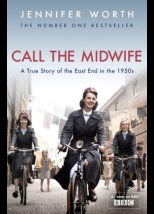 I was so moved by the PBS series that I ordered the trilogy of books by Jennifer Worth. I also read the background of the novels and saw that a challenge had gone out for somebody to step up and be the "James Herriot" of midwives. Jennifer Worth took up the challenge and penned her memoirs. So, in view of the numerous reviews already written, I'll do a three-way comparison. How does the first book compare to the PBS Series, and how does it compare in terms of narrative style to James Herriot's books.
I was so moved by the PBS series that I ordered the trilogy of books by Jennifer Worth. I also read the background of the novels and saw that a challenge had gone out for somebody to step up and be the "James Herriot" of midwives. Jennifer Worth took up the challenge and penned her memoirs. So, in view of the numerous reviews already written, I'll do a three-way comparison. How does the first book compare to the PBS Series, and how does it compare in terms of narrative style to James Herriot's books.
The PBS series is often faithful to Worth's memoir, occasionally swapping this midwife character for that in the retelling of the births. But while viewers consider the PBS series to be a bit dark and edgy at times, the memoir can get a lot darker. Both follow the formula of dark bits and light bits, but the book is more extreme at both ends. The PBS series is better paced and has been tweaked to make the anecdotes more satisfying, more wrapped up at the end of each section. In the written memoir, not every ending is as resolved as in the TV series. Overall, I found the PBS series to be more enjoyable, but the written memoir to be more gripping in places, more outright hilarious at times, and to cause me more soul searching as I consider Jennifer's spiritual quest. Odd that the PBS series refers to the spiritual side of Jennifer's growth more often, and yet the book is more convincing about it, at least to me. BTW, the characters of Sister Monica Joan and Sister Evangeline are less likable at times in the written memoir, but far, far more vivid and memorable.
In terms of taking up the call to do for midwives what Herriot had done for vets and Yorkshire, Worth is less likeable as a narrator than Herriot, but also less obvious to the reader, at least at times. Alf Wight, the real James Herriot, cast himself in a self-effacing role throughout his novels, and was never averse to making himself the butt of his own jokes. Worth casts herself with a far more severe pen, in some ways, showing her faults and even criticizing them. Then again, there is an almost misogynistic tone to some of her accounts, and at times a certain snobbishness, or at least condescension, comes through the voice of her narrative. This is paradoxical, because she is so clearly humble at other times in depicting people who would have been her social inferiors. Nevertheless, there are moments where I don't like her voice in the narrative. But she can also drop her voice out of the narrative and become invisible as she tells other people's sides of the story.
Herriot gave people a heart warming recollection of a perfectly lovely, though challenging, place and time. Worth depicts one of the roughest and grimmest of locales, and she tackles her story often as a spiritual journey. Both writers succeed admirably in what they attempted, but there are stark differences in how they did it. I cannot say that one is superior to the other. That depends on the reader. Read them both!
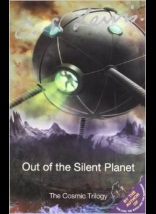 A rabidly fascist scientist and a totally corrupt and wealthy businessman kidnap a boring linguistics professor who is a Christian. They intend to offer him over to the alien mercies of the creatures who inhabit the planet Mars, in return for the boatloads of gold that can be dug up there and hauled home to earth. Once landed on Mars, the Christian professor escapes, and the middle part of the book becomes a sort of travel log of Malacandra (Mars, in our vernacular). The final part of the book descends into worthwhile satire, as a god-like creature brings all the humans to court to hear out the matter and make a judgment.
A rabidly fascist scientist and a totally corrupt and wealthy businessman kidnap a boring linguistics professor who is a Christian. They intend to offer him over to the alien mercies of the creatures who inhabit the planet Mars, in return for the boatloads of gold that can be dug up there and hauled home to earth. Once landed on Mars, the Christian professor escapes, and the middle part of the book becomes a sort of travel log of Malacandra (Mars, in our vernacular). The final part of the book descends into worthwhile satire, as a god-like creature brings all the humans to court to hear out the matter and make a judgment.
Readers looking for a cracking good read in the styles of 1950's sci-fi, may be disappointed by the end.Readders looking for somebody to give the plan of salvation at the end to see who gets saved, will never get the point of the book.
OOTSP depicts a universe that runs smoothly and beautifully, with each planet ruled by an Oyarsa (an angel) who, we assume, answers up a chain to Christ, or God. The material creatures of the planet Malacandra are the obedient but mostly self-governing subjects of the Oyarsa. The book can be tedious as Lewis spells out this world of sinless perfection and its flesh and blood realities like danger, sex, child-bearing, and even death. The best part of the book is the last 20 percent, when Ransom, the main character, must act as translator between his two human counterparts and the sinless Oyarsa who questions them. Lewis is at his best then, depicting stubborn sinners defending their sin to a sinless creature.
What many critics of OUT OF THE SILENT PLANET miss is that Lewis reconciles science (as far as science understood the solar system at that time) with the medieval construct of the universe as God's domain, from which man is excluded. Lewis took the step, radical for his time, of writing space as a sea of life, not a vast and cold wasteland of death.
If you like to think, this book is worth reading. If you want the ready-made, shallow and superficial glop sold today as Christian fiction, this book will be a reading of the oblique and incomprehensible.
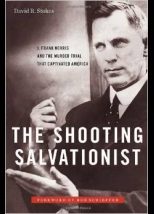 Fundamentalists whitewash the legacy of J Frank Norris. This historical narrative of one chapter in his tumultuous life will remind many of the temper and ego of Jack Hyles. It is also a masterful work of "setting the record straight" about a man who was a religious huckster and a crafty pulpiteer.
Fundamentalists whitewash the legacy of J Frank Norris. This historical narrative of one chapter in his tumultuous life will remind many of the temper and ego of Jack Hyles. It is also a masterful work of "setting the record straight" about a man who was a religious huckster and a crafty pulpiteer.
Author and scholar David R Stokes paints a vivid an detailed portrait of the world of J Frank Norris, a world with many reins, some of which were firmly controlled by Norris himself. Norris was the tea-totalin' KKK-supporting, hellfire and brimstone preacher and pastor of Fort Worth’s largest church. He had his own radio station and published a Fundamentalist newspaper with a circulation that was nationwide. Once I read this book, I realized how John R Rice and Jack Hyles and ,to a lesser extent, Bob Jones Sr learned the ropes of preacher stagecraft.
But when Norris shot an unarmed man in his church office, the empire of influence, religious control, and white supremacy that he had built was put on shakier ground.
With meticulous detail, Stokes shows all the factors that contributed to the trial of J Frank Norris. Regrettably, as much as I loathe Norris, I found myself agreeing with the acquittal. That should inform the reader of how fairly and impartially the author provides all the information. I blame Norris for creating the pressure cooker environment that caused the confrontation, and I blame him for the violence that surely had to follow from his tactics of rabble rousing. But in view of the facts of the trial, I agree with the verdict, however reluctantly.
Stokes, by the way, is incredibly impartial as author and researcher. His intrusions into the presentation are rare. But I also add that after reading of Norris' early life, I am certain that the late mega-church fundy pastor Jack Hyles entirely fabricated his own childhood in order to make Norris' story his own. Vic Nischik had done research in the early 1990's to show that Hyles' own father had not been a drunk and had supplied financial support for his son after separating from his wife.But I guess the Norris story was better, so Hyles used that instead.
I document abuses in Christian Fundamentalism, the very sect that Norris pioneered. It is clear that, as long as IFB churches claim Norris with pride, they will never get beyond the barnstorming and stagecraft that Norris used, rather than serious discussion of the text of Scripture.
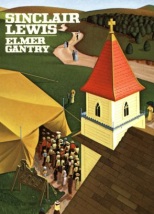 This book is an astonishing read of modern Christian Fundamentalism. Just replace the trains with planes, and you will have a survey of the universe of John R Rice, SWORD OF THE LORD, Bob Jones University, Liberty, etc. Lewis did remark at several points that he had visited J Frank Norris' church to comprehend the preaching and thinking of the man. And Gantry in many ways reflects Norris (as well as Billy Sunday), particularly the sections on his ability to control large crowds and his methods of rising to prominence.
This book is an astonishing read of modern Christian Fundamentalism. Just replace the trains with planes, and you will have a survey of the universe of John R Rice, SWORD OF THE LORD, Bob Jones University, Liberty, etc. Lewis did remark at several points that he had visited J Frank Norris' church to comprehend the preaching and thinking of the man. And Gantry in many ways reflects Norris (as well as Billy Sunday), particularly the sections on his ability to control large crowds and his methods of rising to prominence.
The book falls roughly into three sections
- 1. Elmer in seminary and Baptist Fundamentalism
- 2. Elmer among the Holiness/pentacostals/charismatics (actually Four Square Gospel and Aimee Semple McPherson)
- 3. Elmer as Prohibitionist and social reformer
The characters are vivid, and Lewis paints the backdrop of time and place with careful detail. No wonder this book translated so well to film. Modern readers will easily comprehend the times in which the story takes place. On the down side, I have read reviews by current Young Fundamentalists who find the narrative too detailed and therefore tedious.
The novel shows the womanizing, scheming, and profit taking of Fundamentalism's early days. Sadly, things have only gotten worse, as child molesting is now extremely common in these churches. But the book is beneficial because it was written ~1926, and it depicts widespread corruption. So the idea that there ever was a "good old days" in Fundamentalism in which corruption was rare is bogus.
I would recommend this book for Fundamentalists and former Fundamentalists. It will show you that Christian Fundamentalism has always been what it is now: corrupt, predatory, and hysterical. The one caveat is that Lewis, in his cynicism, depicts all morally good people or groups as effete, torpid, with no inner sense of guidance, and unable to come to grips with the corruption that runs society and religion.
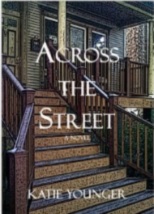 If you are unaware of Independent Fundamental Baptists, this book is a good intro. It may spin your head around to see so many trivial things turned into such huge spiritual issues by people who take themselves so seriously. But the author is accurate in her portrayal of the "Baptist radar." This is the power of this nove!l: It depicts the way that people think in the IFB, and overall it is spot-on. Non-fundamentalists will be shocked and amazed. Any Fundamentalist who reads the book may benefit by seeing the banality of his religion put in print. It's a telling moment when one character remarks that the Baptists only hand out tracts in towns while the Catholics and the Lutherans feed the poor and care for special needs children.
If you are unaware of Independent Fundamental Baptists, this book is a good intro. It may spin your head around to see so many trivial things turned into such huge spiritual issues by people who take themselves so seriously. But the author is accurate in her portrayal of the "Baptist radar." This is the power of this nove!l: It depicts the way that people think in the IFB, and overall it is spot-on. Non-fundamentalists will be shocked and amazed. Any Fundamentalist who reads the book may benefit by seeing the banality of his religion put in print. It's a telling moment when one character remarks that the Baptists only hand out tracts in towns while the Catholics and the Lutherans feed the poor and care for special needs children.
The characters are a little glib at times, quickly and superficially drawn. Yet there are some scenes that are quite vivid and real. Readers will recognize the "types" of the super spiritual guy, the sulky and self destructive teenage girl, the horny kid across the street. But Joe and Debbie, the Catholic cop and his wife, are real and warm, especially Joe. There were a few scenes bogged down by the omniscient narrator, or by too much chit-chat. The plot suffers at times from predictability. But the point is not the plot. The point is to paint a picture of Baptist Fundamentalism, and overall, the author succeeds
Back to the Christian Fiction Index
Back to Jeri's home page
 I was so moved by the PBS series that I ordered the trilogy of books by Jennifer Worth. I also read the background of the novels and saw that a challenge had gone out for somebody to step up and be the "James Herriot" of midwives. Jennifer Worth took up the challenge and penned her memoirs. So, in view of the numerous reviews already written, I'll do a three-way comparison. How does the first book compare to the PBS Series, and how does it compare in terms of narrative style to James Herriot's books.
I was so moved by the PBS series that I ordered the trilogy of books by Jennifer Worth. I also read the background of the novels and saw that a challenge had gone out for somebody to step up and be the "James Herriot" of midwives. Jennifer Worth took up the challenge and penned her memoirs. So, in view of the numerous reviews already written, I'll do a three-way comparison. How does the first book compare to the PBS Series, and how does it compare in terms of narrative style to James Herriot's books.
 A rabidly fascist scientist and a totally corrupt and wealthy businessman kidnap a boring linguistics professor who is a Christian. They intend to offer him over to the alien mercies of the creatures who inhabit the planet Mars, in return for the boatloads of gold that can be dug up there and hauled home to earth. Once landed on Mars, the Christian professor escapes, and the middle part of the book becomes a sort of travel log of Malacandra (Mars, in our vernacular). The final part of the book descends into worthwhile satire, as a god-like creature brings all the humans to court to hear out the matter and make a judgment.
A rabidly fascist scientist and a totally corrupt and wealthy businessman kidnap a boring linguistics professor who is a Christian. They intend to offer him over to the alien mercies of the creatures who inhabit the planet Mars, in return for the boatloads of gold that can be dug up there and hauled home to earth. Once landed on Mars, the Christian professor escapes, and the middle part of the book becomes a sort of travel log of Malacandra (Mars, in our vernacular). The final part of the book descends into worthwhile satire, as a god-like creature brings all the humans to court to hear out the matter and make a judgment.
 Fundamentalists whitewash the legacy of J Frank Norris. This historical narrative of one chapter in his tumultuous life will remind many of the temper and ego of Jack Hyles. It is also a masterful work of "setting the record straight" about a man who was a religious huckster and a crafty pulpiteer.
Fundamentalists whitewash the legacy of J Frank Norris. This historical narrative of one chapter in his tumultuous life will remind many of the temper and ego of Jack Hyles. It is also a masterful work of "setting the record straight" about a man who was a religious huckster and a crafty pulpiteer.
 This book is an astonishing read of modern Christian Fundamentalism. Just replace the trains with planes, and you will have a survey of the universe of John R Rice, SWORD OF THE LORD, Bob Jones University, Liberty, etc. Lewis did remark at several points that he had visited J Frank Norris' church to comprehend the preaching and thinking of the man. And Gantry in many ways reflects Norris (as well as Billy Sunday), particularly the sections on his ability to control large crowds and his methods of rising to prominence.
This book is an astonishing read of modern Christian Fundamentalism. Just replace the trains with planes, and you will have a survey of the universe of John R Rice, SWORD OF THE LORD, Bob Jones University, Liberty, etc. Lewis did remark at several points that he had visited J Frank Norris' church to comprehend the preaching and thinking of the man. And Gantry in many ways reflects Norris (as well as Billy Sunday), particularly the sections on his ability to control large crowds and his methods of rising to prominence.
 If you are unaware of Independent Fundamental Baptists, this book is a good intro. It may spin your head around to see so many trivial things turned into such huge spiritual issues by people who take themselves so seriously. But the author is accurate in her portrayal of the "Baptist radar." This is the power of this nove!l: It depicts the way that people think in the IFB, and overall it is spot-on. Non-fundamentalists will be shocked and amazed. Any Fundamentalist who reads the book may benefit by seeing the banality of his religion put in print. It's a telling moment when one character remarks that the Baptists only hand out tracts in towns while the Catholics and the Lutherans feed the poor and care for special needs children.
If you are unaware of Independent Fundamental Baptists, this book is a good intro. It may spin your head around to see so many trivial things turned into such huge spiritual issues by people who take themselves so seriously. But the author is accurate in her portrayal of the "Baptist radar." This is the power of this nove!l: It depicts the way that people think in the IFB, and overall it is spot-on. Non-fundamentalists will be shocked and amazed. Any Fundamentalist who reads the book may benefit by seeing the banality of his religion put in print. It's a telling moment when one character remarks that the Baptists only hand out tracts in towns while the Catholics and the Lutherans feed the poor and care for special needs children.